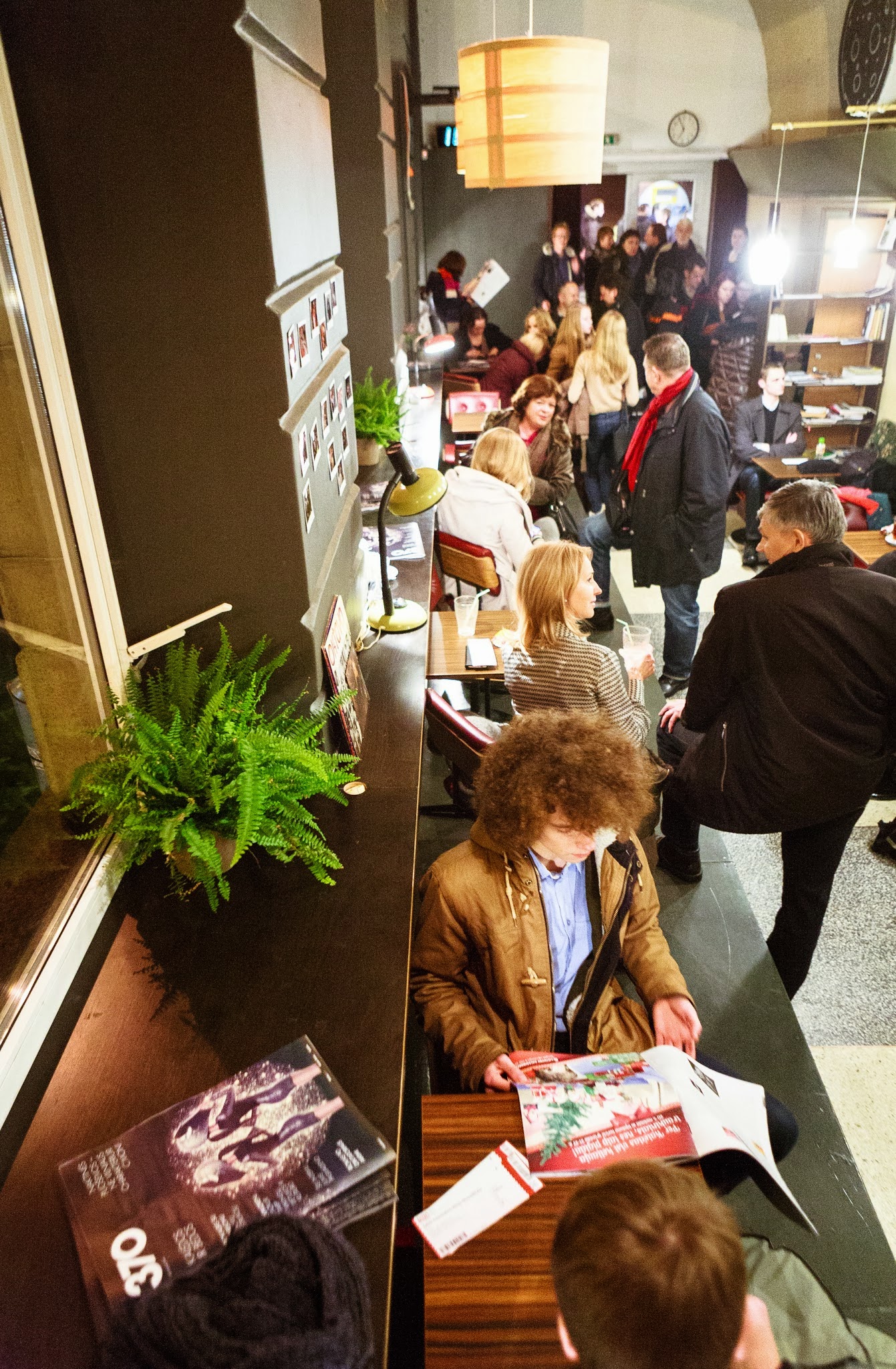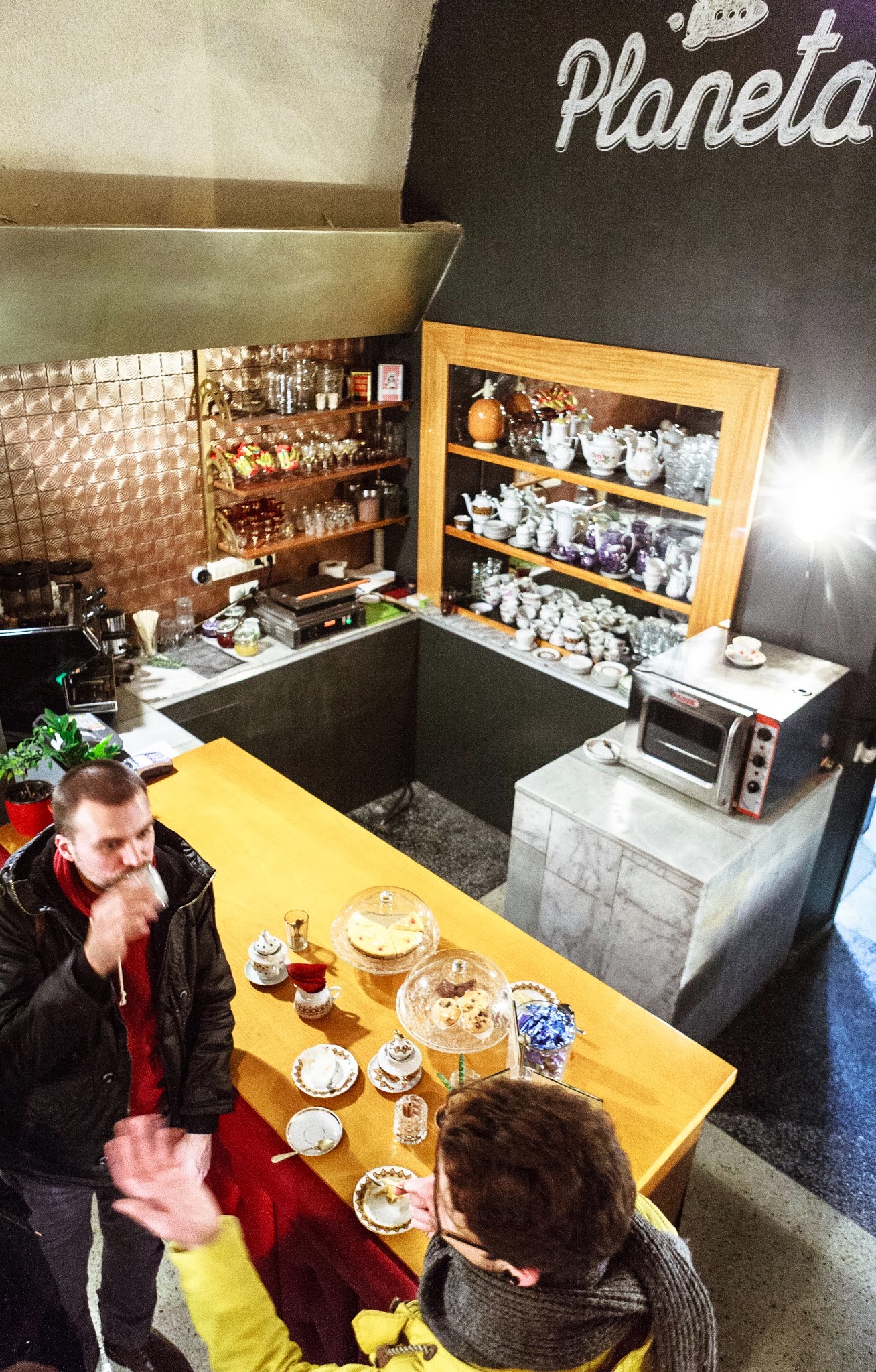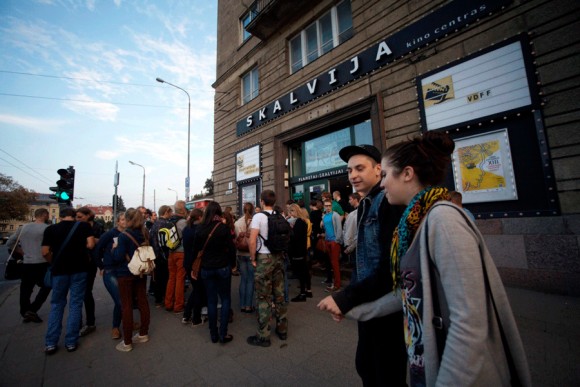 The cinema hosts over 58,000 spectators in more than 1,200 screenings per year.
The cinema hosts over 58,000 spectators in more than 1,200 screenings per year.
Skalvija is a member of two networks, Europa Cinemas and CICEA. It is also involved in film distribution and it is organising courses on scriptwriting, directing, editing, film history, and also outdoor filmmaking workshops.
FNE: What is the biggest challenge of running a cinema such as yours?
Vilma Levickaitė: The biggest challenge is the lack of stability in culture and film policy in the country. Being an art house means hard and profound work with art and high culture projects that need to be helped by state funds. We, as a cinema, have developed several long-term initiatives whose existence depends on at least a little money from the state. The lack of policy and clear long-term priorities disrupts consistent development of the audiences, and film culture in general.
FNE: What kinds of films do you prefer to screen and why?
V.L.: We prefer screening interesting, sometimes even “hard core” auteur films such as Amour by Michael Haneke, Holy Motors by Leos Carax, or Hannah Arendt by Margarethe von Trotta. We like programming films that give the audience not only emotional, but also intellectual satisfaction, films that are first of all, pieces of art.
FNE: The cinema is home to many festivals, events and film weeks. Why are these important and what do they achieve?
V.L.: Yes, indeed art house cinemas very often are home to film events. And of course it helps to bring people in, giving them excitement, valuable meetings and discoveries, deeper insight in film. To speak more generally, it helps in building trust and loyalty between cinema and its audiences.
 FNE: What is the role of Europa Cinemas for cinemas such as your cinema and why is it important?
FNE: What is the role of Europa Cinemas for cinemas such as your cinema and why is it important?
V.L.: To be a member of Europa Cinemas means constantly keeping a finger on the pulse of most important issues in the European film industry. Thanks to the network we receive the latest updates regarding new developments in the European film policy, trends in cinema-going, challenges from new media and technology, etc. On the other hand, the financial subsidy gives our cinema more stability which is very important.
FNE: How does a cinema like your serve the local community?
V.L: I suppose we serve the local community while making the film experience accessible for different target groups; for example, senior people have special screenings with special rates, students from film schools and film industry professionals have the opportunity to watch films almost free of charge, young people may enjoy different film workshops, etc.
FNE: Can you say something about your work with young audiences?
V.L.: We are very keen on providing young people with an opportunity to learn more about film and filmmaking. Education is one of the key activities. Believing in three core elements of film education we provide young audiences with the possibility to watch great films, to talk about them and put hands on practical filmmaking. Five year old children may watch films on weekends with their parents, meet film professionals in Q&A’s, and participate in animation workshops (Karlsono Kinas). Teenagers may participate in school cinema programmes for watching films, participating in film talks or even film workshops for the classes (Mokausi is Kino). Young people attend the film school for teens that operates as long-term (one to two years) after school classes (Skalvijos Kino Akademija opened in 2007). Students are also welcome to attend special price screenings, film talks, film courses, etc.
 FNE: What about the digitalisation of cinemas? How will it affect your work and your cinema?
FNE: What about the digitalisation of cinemas? How will it affect your work and your cinema?
V.L.: It was a question of life and death. Now we are able to screen every film available for distribution, cooperate with all the distributers and festivals, and with some exceptions we are now able to screen films at the same time as bigger cinemas. And what is the most joyful, we are now able to programme classics, because more and more companies in the world invest in the digitalisation and restoration of old films and they become more and more accessible for little cinemas. I hope digitalisation will help us create quality film programmes and ensure diversity.
 Contact :
Contact :
“Skalvijos" kino centras
Goštauto 2/15, Vilnius LT-01104
Phone: (+370) 5 2610505
www.skalvija.lt
This email address is being protected from spambots. You need JavaScript enabled to view it.




















